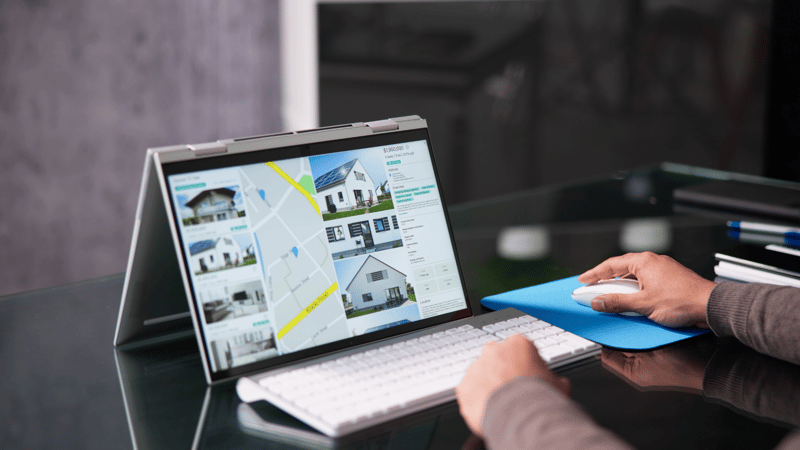Managing rental properties involves multiple tasks, from rent collection to maintenance and tenant communication. Traditional methods can be inefficient, leading to errors and delays. Cloud-based property management systems provide a streamlined, automated, and efficient approach to handling rental operations. This blog explores the benefits of cloud-based solutions and why landlords should consider switching to modern technology.
1. Increased Accessibility and Convenience
A cloud-based property management system allows landlords to manage their properties from anywhere with an internet connection. Whether at home or traveling, they can access tenant information, rental payments, and maintenance requests in real time. This convenience eliminates the need for physical paperwork, making operations seamless. Tenants also benefit by submitting requests online without needing to visit an office, improving overall satisfaction and efficiency.
Key Benefits:
- Access rental records, leases, and financial reports from any device.
- Tenants can make payments and report issues online, reducing delays.
- Real-time updates ensure landlords stay informed of property activities.

2. Automated Rent Collection and Payment Tracking
Manual rent collection can be time-consuming and prone to errors. Cloud-based property management systems automate this process by sending tenants payment reminders and offering multiple payment options. Transactions are recorded instantly, eliminating the need for manual bookkeeping. Landlords can track overdue payments, generate reports, and ensure financial transparency. This automation reduces disputes, ensures timely payments, and enhances cash flow management, making rental operations smoother and more efficient.
Key Benefits:
- Automated payment reminders reduce late payments.
- Secure online transactions make rent collection seamless.
- Detailed financial tracking minimizes errors and improves record-keeping.
3. Efficient Maintenance Request Management
Handling maintenance requests manually can result in lost or delayed service requests. Cloud property management solutions streamline this by enabling tenants to submit requests with detailed descriptions and photos. Landlords receive instant notifications and can assign tasks to service providers promptly. This structured approach reduces response times, ensuring quick resolution of maintenance issues. Keeping records of past requests also helps in tracking property upkeep and planning future maintenance efficiently.
Key Benefits:
- Tenants can submit detailed maintenance requests online.
- Landlords receive instant alerts and can assign tasks to vendors.
- Digital records improve property maintenance tracking and efficiency.
4. Enhanced Security and Data Protection
Security is a major concern for landlords managing tenant information and financial data. Cloud-based property management systems offer advanced security features such as encryption, secure logins, and automated backups. These measures prevent unauthorized access, data breaches, and accidental data loss. Role-based access controls ensure only authorized users handle sensitive information. Unlike paper records or local storage, cloud platforms provide better security, reducing risks associated with traditional property management methods.
Key Benefits:
- Encrypted data ensures protection from cyber threats.
- Automated backups prevent loss of important records.
- Role-based access control enhances data security and privacy.
5. Better Tenant Communication and Engagement
Effective communication is essential for maintaining good landlord-tenant relationships. A property management software with built-in messaging and notification features ensures smooth communication. Landlords can send lease renewal reminders, rent due notices, and maintenance updates instantly. Tenants can also reach out to landlords without delays, reducing misunderstandings. This transparency fosters trust and creates a positive rental experience. Keeping a record of all interactions further helps in resolving disputes professionally.
Key Benefits:
- Instant messaging keeps communication clear and timely.
- Automated notifications reduce missed deadlines for payments or renewals.
- Documented conversations help in resolving disputes effectively.
6. Cost Savings and Increased Efficiency
A cloud property management system reduces costs associated with paperwork, storage, and administrative tasks. Automating operations eliminates the need for manual work, saving time and minimizing errors. Landlords can efficiently manage multiple properties without hiring additional staff, lowering operational expenses. These systems also reduce legal risks by ensuring timely documentation of leases and transactions. Overall, cloud technology streamlines operations, making property management more efficient and cost-effective in the long run.
Key Benefits:
- Reduces paperwork and administrative expenses.
- Minimizes accounting and lease management errors.
- Enables landlords to manage multiple properties with fewer resources.
The Bottom Line
The benefits of cloud-based solutions in property management are undeniable. From automating rent collection to securing data and improving tenant communication, cloud platforms provide a modern, efficient way to manage rental properties. Cloud-based property management helps landlords save time, reduce costs, and enhance operational efficiency. If you're still using outdated methods, now is the perfect time to transition to a smarter property management approach.













